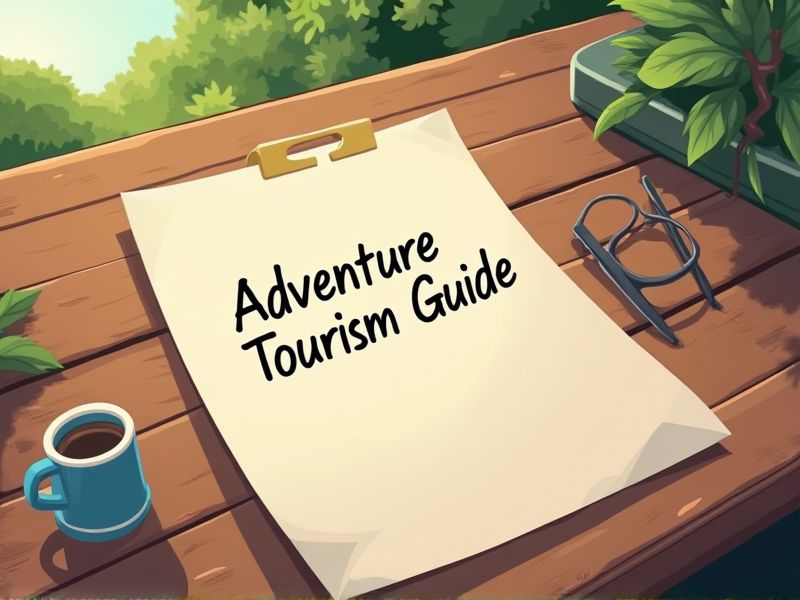
Adventure tourism involves navigating challenging environments, which inherently carries safety risks. Proper certifications equip guides with essential skills in first aid, navigation, and risk assessment, ensuring client safety. They also provide knowledge of environmental conservation practices vital for preserving natural landscapes. Here are important certifications you may need for a career as an Adventure Tourism Guide.
Wilderness First Aid Certification
Adventure tourism involves activities in remote areas where medical facilities are far. Having a Wilderness First Aid Certification equips guides with the skills to handle medical emergencies on-site. Quick response during such emergencies can prevent minor injuries from escalating into critical conditions. Guides with this certification also gain a higher level of trust and credibility among tourists seeking safe exploration experiences.
CPR and AED Certification
Adventure tourism often involves activities in remote or challenging environments, increasing the likelihood of medical emergencies. A guide trained in CPR and AED can provide immediate care, potentially saving lives before professional medical help arrives. Certification ensures the guide's skills are up-to-date and adherent to standard safety protocols. Tourists and organizers are likely to choose services with certified guides, enhancing the operator's reputation and business viability.
Leave No Trace Certification
Leave No Trace Certification ensures adventure tourism guides can minimize environmental impact, preserving natural habitats for future enjoyment. Certification provides guides with the necessary skills to educate tourists on responsible behavior, which decreases habitat degradation. When guides are certified, tourism activities become more sustainable, contributing to ecological balance and long-term viability of tourism in natural areas. Compliance with Leave No Trace principles can enhance a guide's reputation, attracting environmentally-conscious clients who value sustainable tourism practices.
Outdoor Leadership Certification
An Outdoor Leadership Certification equips guides with essential risk management skills, reducing the likelihood of accidents and enhancing safety. It provides comprehensive training in environmental stewardship, fostering sustainable tourism practices. Certification elevates the professionalism of guides, increasing client trust and satisfaction. The structured learning in leadership techniques prepares guides to effectively handle diverse groups and dynamic situations.
Rock Climbing Instructor Certification
Rock climbing instructor certification ensures guides possess necessary technical skills for safe climbing practices. It signals a recognized standard of competence, instilling trust in clients seeking thrill in adventure tourism. Guides with this certification better manage climbing risks, reducing incidents and increasing safety. Certification aligns with industry regulations, which supports a professional reputation and legal compliance.
Whitewater Rafting Certification
Whitewater rafting certification ensures that adventure tourism guides possess the necessary skills and knowledge to navigate potentially hazardous river conditions, enhancing safety. This certification provides a standardized framework for training, which results in more consistent and reliable guidance offered to tourists. Having certified guides boosts client confidence, potentially increasing tourism interest and revenue. Industry organizations often require certification, aligning operational practices with best standards and legal regulations.
Swiftwater Rescue Certification
Adventure tourism often involves water-based activities like river rafting and kayaking, where swift currents pose significant risks. Obtaining Swiftwater Rescue Certification equips guides with the necessary skills to perform water rescues and manage emergencies effectively. This certification instills confidence in tourists, enhancing their overall experience and ensuring safety. Regulatory bodies and insurance companies often require guides to be certified to mitigate liability and ensure compliance with safety standards.
Rappelling and Mountaineering Techniques Certification
The certification ensures that guides possess the necessary skills to safely lead tourists through challenging terrains, reducing the risk of accidents. Certified guides are better equipped to handle emergencies, which builds trust with tourists and enhances their overall experience. Tourism operators often require such certifications to comply with legal and insurance obligations, ensuring their business operations meet safety standards. Guides with certifications are perceived as more professional, increasing their marketability and potential for employment in the competitive adventure tourism industry.
Backcountry Navigation and Survival Certification
Obtaining a Backcountry Navigation and Survival Certification equips guides with essential skills to ensure the safety and security of tourists in unpredictable environments. It instills confidence in both the guide and the tourists, reducing liability concerns for tour companies. Proper navigation and survival training directly correlate with decreased accident rates during adventure excursions. This certification often leads to enhanced customer satisfaction, as tourists feel assured of a guide's capability and expertise.
Environmental Interpretation Certification
Environmental Interpretation Certification equips adventure tourism guides with the skills to accurately and engagingly convey important ecological and cultural information. This certification enhances the visitor experience by providing insights that deepen understanding and appreciation of natural landscapes. With increased awareness, tourists are more likely to respect and preserve the environments they explore. Proper interpretation also reinforces sustainable tourism practices, reducing negative impacts on ecosystems and promoting conservation efforts.
Summary
Readers exploring adventure tourism with certified guides gain increased trust, knowing these guides possess enhanced safety and expertise. Certifications ensure guides are updated on best practices, leading to a higher-quality experience. As a consequence, you might experience fewer accidents and more satisfying adventures. Certified guides often lead to positive word-of-mouth and greater customer loyalty.
